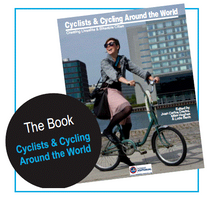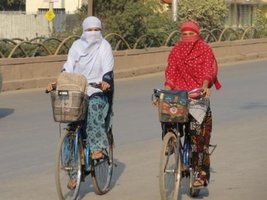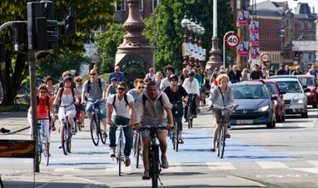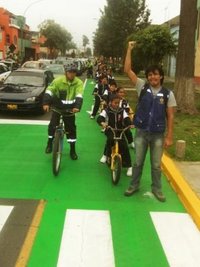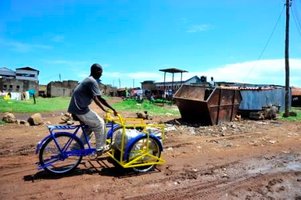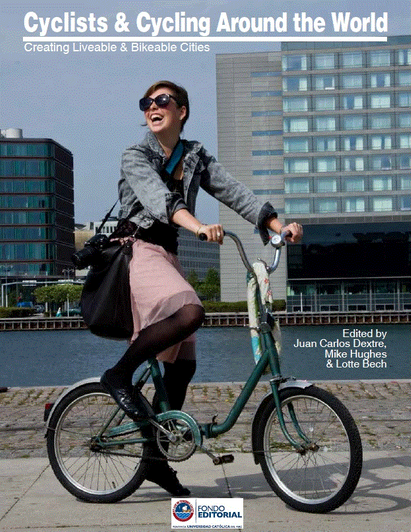Sponsors of the printed book
Press kit
Click on the Picture to see
the folder about the book
Socio-economic Impact of a Cycle – A gendered social perspective of cycling in India
In India ownership of a bicycle increases women’s mobiliy and income, thereby raising their living standard and gender equality, as well as offering better status in the families and in the communities. Author: Dr. Anvita Aurora, Managing Director of Innovative Transport Solutions (iTrans)
(photo:Gerhard Menkoff)
Branding Cycling – Mainstreaming A Good Thing Marketing of cycling is described as mainstreaming a good thing. The great need of our time is to market cycling energetically and to gain acceptance for it in the public’s mind as a natural form of transport for modern urbanites. The bike is seen as the key to solving the liveability aquation in out cities. The shaping of our streets and public spaces in the future needs prober design not just traffic engineering. Author: Mikael Colville-Andersen, Copenhagenize, Denmark
(Photo: Copenhagenize.eu)
Cycle Training for Children – Take a childs
perspective and make it fun!
Children down to two years of age can start practising on a training bike on the
Danish Cyclists’ Federation’s playground. Authors: Mai-Britt Kristensen and Loa Bendix, Danish Cyclists’ Federation.
(photo: Danish Cyclists‘ Federation)
Revitalisation of a Cycle Culture – Biking again in Guangzhou
In the City of Guangzhou in China the challenge has been to breath new life into a dying cycle culture. Two projects have greatly improved cycling conditions. The creation of a large network of greenways within the city and as links to other cities, as well as creating a public bike system integrated with the public transport and safe parking. This valuable experience can be used in other cities in China. Author: Bram van Ooijen, Institute of Transport & Development Policy (ITDP), Guangzhou China.
(Photo: Bram van Ooijen)
Cycle Events – Teaching children for a bikeable Lima
The City of Lima is educating children in cycling as key to developing cycling as a mean of transport in the future. The special programme CICLOLIMA has been developed to strengthen sustainable mobility. They are starting in the streets and in the parks to educate both the children and the parents in learning a different attitude to cycling. Author: JessicaTantaleán.
(Photo: Ciclolima File)
Choosing the Cago Bike – Experiences from Kisumu and Copenhagen
Cargo bikes can provide new solutions and opportunities for communities in both developing and developed countries. In Kisumu in Kenya and Copenhagen Denmark one family from each city benefit from using their cargo bike: one provides low cost solution for waste collection and is empowered to earn better, while the other a family with children choose a low-cost urban mobility solution, where a cargo bike substitutes a car. Author: Jeppe Mikél Jensen, Sustainable and mobility consultant.
(Photo: Coop-Africa,Bike2Clean project)
How to Get Started – Ten rule that have increased cycling in Bogotá and other cities
This is an inspiring formula as to how you can contribute to the development of a growing urban cycle culture by acting as a pioneer and role model and by participating in groups that promote cycling. The importance of working together despite differences is emphasised as well as not to forget having fun while promoting cycling. Author: Carlos Felipe Pardo, Bogotá Colombia, Mesa de la Bicicleta.
Photo: Mikael Colville-Andersen



